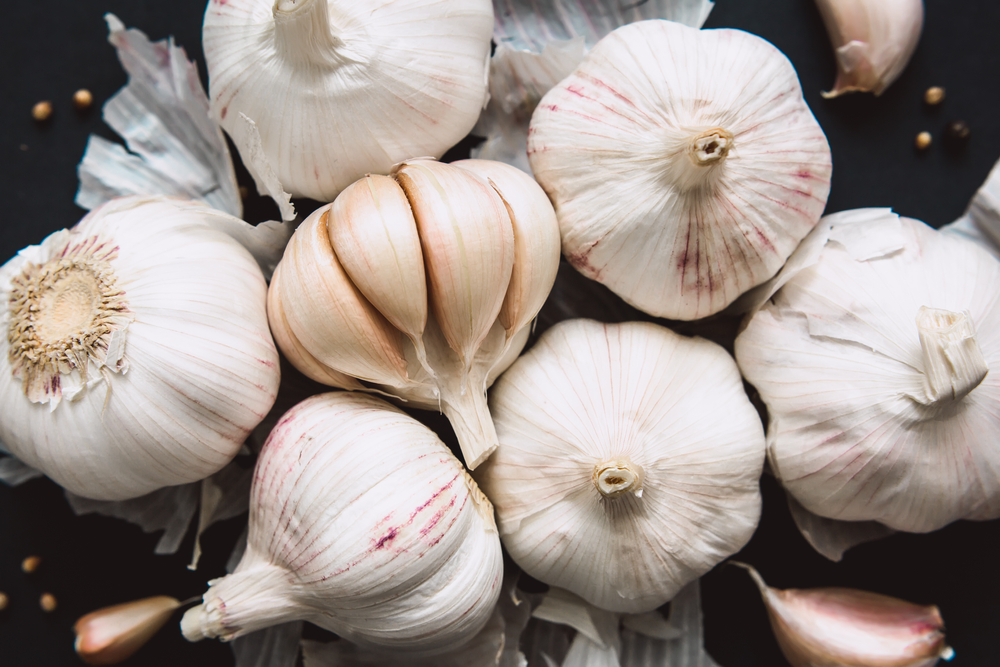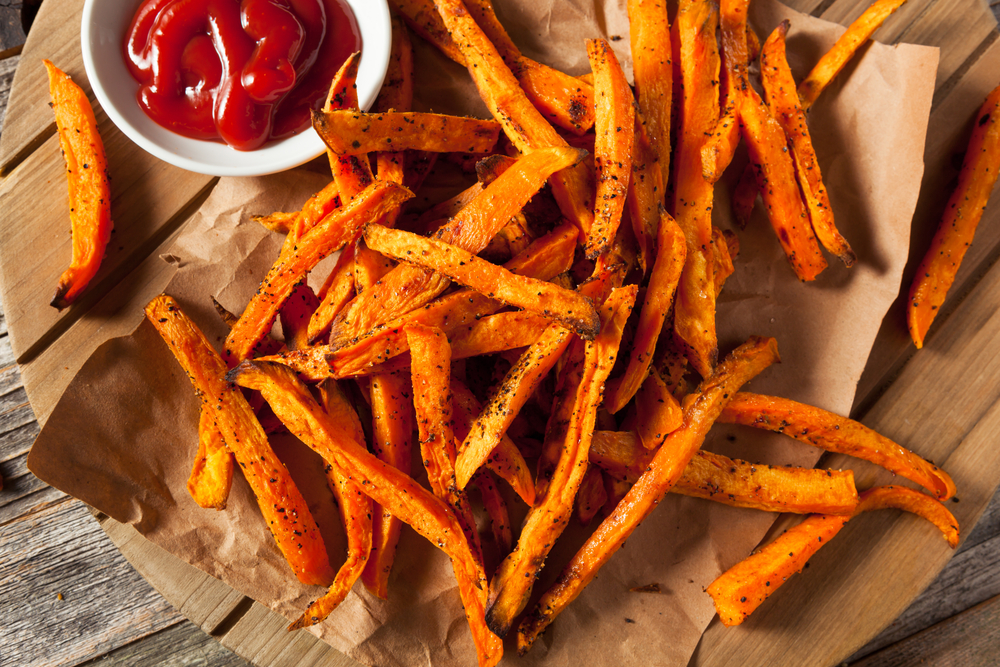If you want to healthify your meals and boost your health, you’ve come to the right place. It might seem challenging at times, with our hectic lives and busy schedules, to pay attention to what foods we eat. However, it’s not the foods that we are discussing today, but some simple ingredients that can make all the difference in the world in terms of your overall well-being.
Read on to find out how you can increase the nutritional value of your everyday meals just by adding these incredible ingredients.

Leafy green vegetables
Leafy greens such as kale, spinach, cabbage and collard greens are chock full of vitamins such as A, C, and K, minerals, and fiber. Eating leafy greens can significantly benefit your eyes, immune system, and blood circulation, reducing the risk of blood clots. This category of vegetables includes magnesium and folate, both huge contributors to the muscle and nervous system.
Legumes
Legumes are an important source of carbohydrates but also bring lots of fiber, iron, and potassium to the table. The fiber in legumes has important positive effects on gut health, while folate supports cell growth. Including lentils, beans, chickpeas and the like to your menu can also contribute to regulating your blood sugar level and keeping your cholesterol in check.
Nuts and seeds
Seeds are extremely healthy, containing healthy fats, protein, vitamins, minerals and fiber to last you for a lifetime. And that’s not even the best part. The cherry on top is that they can be added to almost everything, from soups to stews, smoothies and desserts. They add savor to your meals and make them extremely nutritious. A bonus is that they can also be eaten as they are, for instance, almonds or walnuts.
Whole grains
Whole grains such as brown rice, quinoa, oats, and whole-wheat bread provide far more health benefits than white flour. According to Harvard Health, whole grains are extremely rich in fiber, complex carbohydrates, vitamin B and important minerals such as selenium and magnesium. Their consumption can help with keeping blood sugar levels in check, boosting your metabolism and contributing to a healthy nervous system.
Fatty fish
Salmon, tuna, and sardines are all part of the fatty fish category with impressive effects on health. They are important sources of omega-3 fatty acids, including long-chain polyunsaturated varieties, also called EPA and DHA. These fatty acids have a huge role in helping our bodies work properly throughout our lives, reducing inflammation in our bodies and promoting brain health.
Berries
They might be small, but their power is huge! Berries are important sources of antioxidants that provide immense support in fighting against free radicals and cellular damage. As explained by Everyday Health, eating berries like blueberries, strawberries, raspberries, and cranberries can improve cognitive function, and gut health and even help with weight loss. In addition, they are also beneficial in reducing the risk of cancer and heart problems.
Avocados
According to Medical News Today, avocado is a powerhouse of nutrients such as vitamins, minerals, healthy fats and fiber. They’re low in sugar and packed with monounsaturated fats, which help with cholesterol and improve heart health. In addition, avocados include potassium, which plays an important part in regulating your blood pressure and keeping your heart healthy.
Check this out: 10 Huge Benefits of Eating Avocados Daily
Extra virgin olive oil
Some say it is the secret ingredient that Mediterranean people use to live longer. Whether that’s true or not, we cannot say. But what experts can attest to, is that extra virgin olive oil is a very good source of healthy fats, antioxidants, and anti-inflammatory compounds with impressive health benefits. Such benefits include reducing blood pressure and inflammation as well as the risk of developing dementia.
No wonder many Spanish, Italian and Greek dishes include olive oil!

Garlic and onions
Garlic and onion are kitchen staples, adding a distinct flavor and taste to foods. But that’s not their only power. These bulbs also include allicin, a compound with impressive effects on one’s health, among which reducing blood pressure, improving the immune system and fighting inflammation. Garlic is also known to boost metabolism and circulation, so the more, the merrier.
See also:The Ultimate Guide to the 7 Healthiest Carbs!
Turmeric
This yellow-colored spice has been used for centuries against inflammation. Due to its curcumin content, turmeric can also help with the bad cholesterol in the blood, with muscle soreness after a strenuous activity and even with anxiety.
More than that, it has been found to reduce the risk of health problems, arthritis and some forms of cancer. So, don’t be scared by a few yellow stains, the benefits of this yellow powder are far more important.
Ginger
Ginger is known for its health benefits and has been widely used in traditional medicine, especially for the treatment of digestive and intestinal problems. According to John Hopkins Medicine, “Eating ginger can cut down on fermentation, constipation, and other causes of bloating and intestinal gas.”
Ginger can also help reduce inflammation and nausea, as well as to reduce the effects of arthritis.
Cinnamon
Cinnamon is a popular spice used for fruit-based bakes like apple pies or banana bread. However, its benefits extend outside the sphere of taste, having impressive effects on lowering blood sugar levels, cholesterol, and the risk of type 2 diabetes. Until it’s Pumpkin Spice season again, try adding some cinnamon to your coffee, smoothie, or porridge.
Tomatoes
Are tomatoes fruits or vegetables? According to nutritionists, they are both! Regardless of what you consider them to be, eating more of these fruits/vegetables can add years to your life. That’s because they have the highest level or vitamins and minerals, including lycopene, an antioxidant that reduces the risk of some forms of cancer and heart disease. Tomatoes are extremely useful in helping your skin restore itself because of sun damage and have also been found to improve vision and cognition.
Live yogurt
Yogurt is a very efficient probiotic due to its content of “live” cultures of good bacteria. It has positive effects on gut health by supporting the digestive system, reducing gas, and helping with the absorption of nutrients. Probiotics have also been found to boost immunity and help our bodies fight against some chronic diseases. The best types of yogurt to incorporate into your diet are the plain ones, without added sugar. If you like them sweet, you can always add your favorite fruits into the mix.

Sweet potatoes
Most people prefer white potatoes, but these orange vegetables are far more nutritious and healthy. That’s because they contain large amounts of vitamins, minerals, and fiber, as well as beta-carotene, which improves eye health and boosts immunity.
More than that, sweet potatoes can help with gut transit, support the digestive system, and are an important source of vitamin C.
Dark chocolate
If you’re a fan of chocolate, then you’ll surely delight in the fact that the consumption of dark chocolate has quite the health benefits. If it has a cocoa content of 70% or higher, it becomes a great source of antioxidants, particularly flavanols. These help circulation, regulate blood pressure, and lower the risk of heart problems. Not to mention chocolate is a great food for mood, when consumed in moderation!
Read also:Best 5 Drinks to Strengthen Your Immune System







